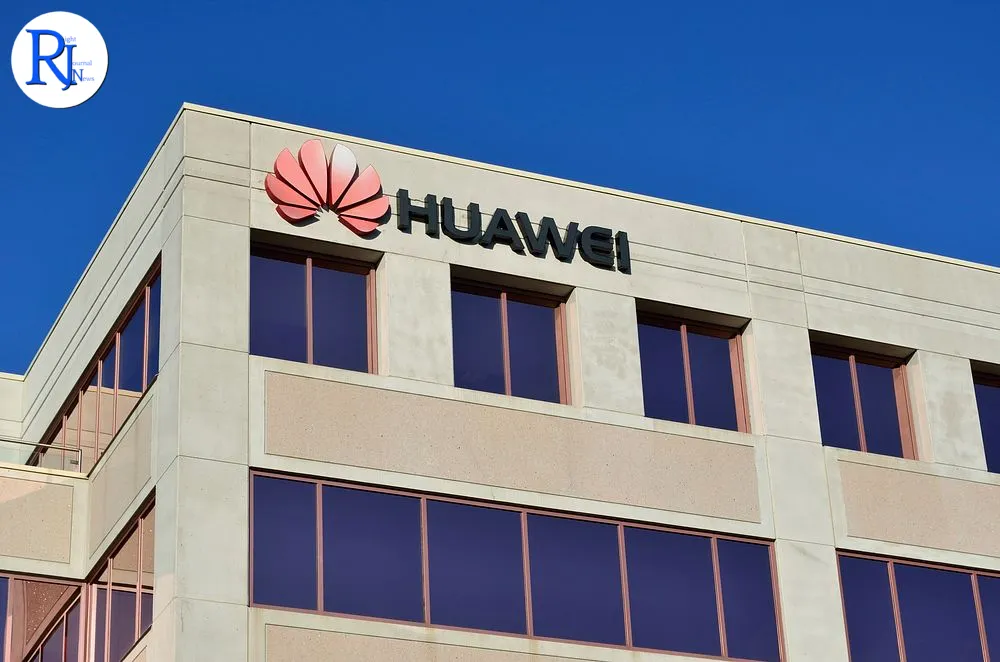Huawei has announced a groundbreaking advancement in storage technology, unveiling an AI Solid State Drive (SSD) designed to enhance efficiency in AI training and inference. This new SSD leverages proprietary software to mitigate the reliance on costly High Bandwidth Memory (HBM), presenting a significant development in the field of AI computing. The technology promises to optimise performance while reducing costs, a crucial factor for industries heavily invested in artificial intelligence.
The announcement, made on 3rd September 2025, marks a significant step forward for Huawei in the competitive tech landscape. The Chinese tech giant has consistently pushed the boundaries of innovation, and this latest product is set to make waves in the sector. By addressing the limitations of HBM, Huawei aims to provide a more accessible and cost-effective solution for AI applications across various industries.

A New Era for AI Storage Solutions
Huawei’s latest offering is set to redefine the parameters of AI storage solutions. Traditional AI computing relies heavily on HBM due to its high-speed data transfer capabilities. However, the high costs associated with HBM have been a barrier for many companies. Huawei’s AI SSD aims to circumvent this issue by using advanced software techniques that optimise data processing and storage efficiency.
The software acts as a ‘secret sauce’, enhancing data throughput without the need for extensive HBM usage. This innovation not only reduces costs but also improves the speed and accuracy of AI training and inference tasks. By integrating this technology into their SSDs, Huawei is providing a scalable solution that can support the growing demands of AI workloads.
The Technology Behind Huawei’s Innovation
At the core of Huawei’s new AI SSD is a sophisticated software mechanism that intelligently manages data flow. This software works by compressing data and optimising its path through the memory system, effectively reducing the load on HBM. This approach allows for faster data processing and reduces the need for large quantities of expensive memory hardware.
According to experts, this advancement could have a transformative impact on AI development. Dr. Li Wei, a leading AI researcher, noted, “Huawei’s approach addresses a critical bottleneck in AI computing. By reducing dependency on HBM, they are not only cutting costs but also paving the way for more efficient AI systems.”
Implications for the Tech Industry
The introduction of Huawei’s AI SSD could have far-reaching implications for the tech industry. With AI applications expanding across sectors such as healthcare, finance, and autonomous vehicles, the demand for efficient and cost-effective computing solutions is higher than ever. Huawei’s innovation offers a viable alternative to traditional memory solutions, potentially lowering the barrier to entry for smaller firms looking to leverage AI technology.
Moreover, this development could spur further innovation among competitors, leading to a new wave of advancements in AI hardware. Companies may be prompted to explore similar software-based solutions, fostering a competitive environment that accelerates technological progress.
Huawei’s Strategic Positioning
Huawei’s release of the AI SSD aligns with its broader strategy to establish itself as a leader in AI technology. The company has invested heavily in research and development, positioning itself at the forefront of AI innovation. This latest product is a testament to Huawei’s commitment to pushing the boundaries of what is possible in AI computing.
Industry analysts believe that Huawei’s focus on integrating advanced software with hardware solutions could set a new standard in the industry. By prioritising efficiency and cost-effectiveness, Huawei is catering to the evolving needs of businesses looking to harness the power of AI.
Looking Ahead: The Future of AI Computing
As the tech industry continues to evolve, innovations like Huawei’s AI SSD will play a crucial role in shaping the future of AI computing. The ability to reduce costs while enhancing performance is a significant advantage in a rapidly growing market. Huawei’s approach could lead to broader adoption of AI technologies, driving further advancements and unlocking new possibilities.
The impact of this development will likely be felt across various sectors, as companies seek to integrate AI into their operations more seamlessly. As Huawei continues to innovate, the potential for AI to transform industries and improve efficiencies becomes increasingly attainable.
In conclusion, Huawei’s unveiling of its AI SSD marks a pivotal moment in the advancement of AI technology. By reducing reliance on expensive memory solutions and enhancing performance, Huawei is setting a new benchmark for efficiency and innovation in AI computing. As the industry moves forward, this development is poised to influence the trajectory of AI technology and its applications worldwide.

